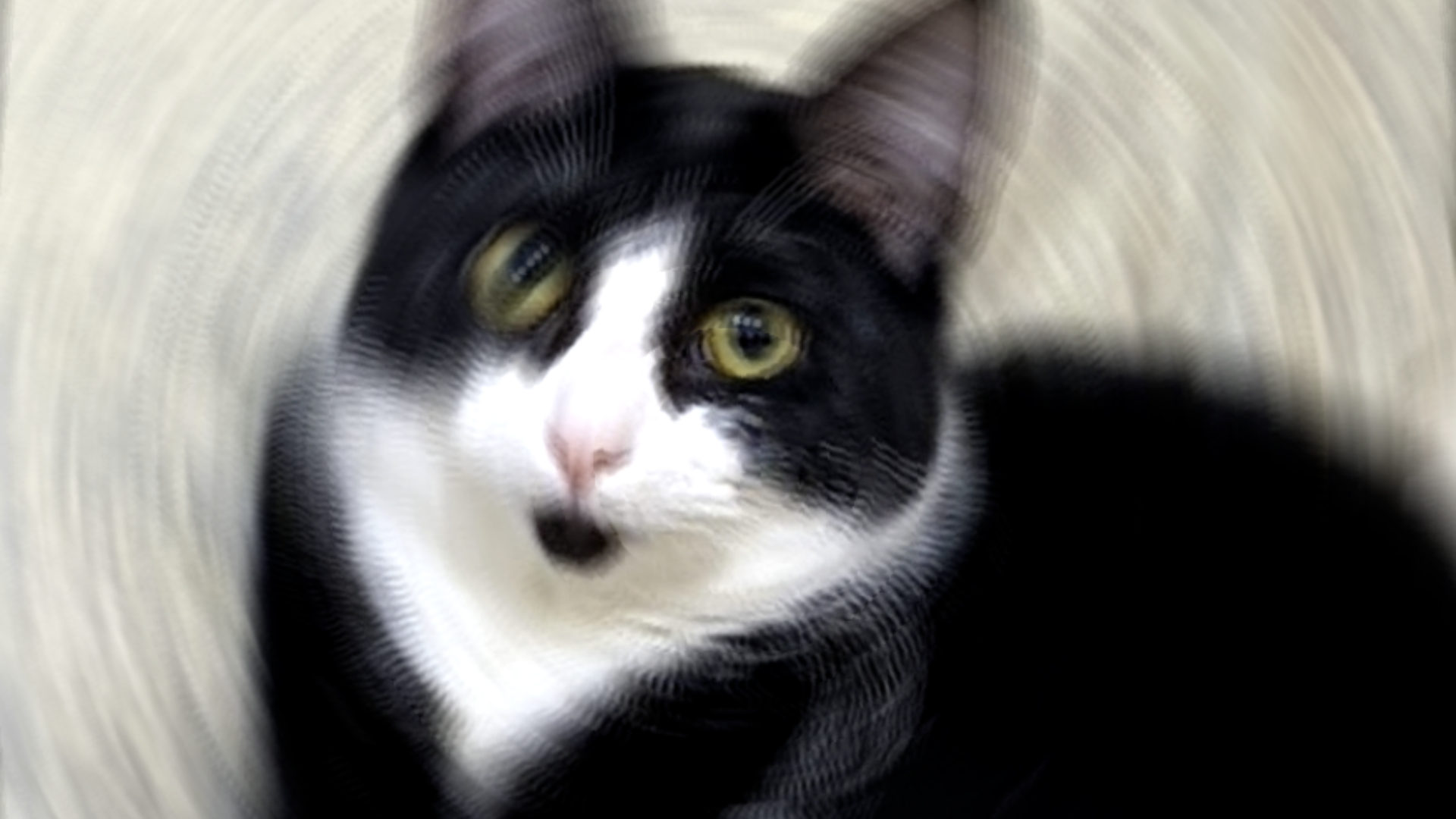The emotional rollercoaster of Tux the cat’s abduction by a Lyft driver on Saturday afternoon was a clash of humanity, algorithms, the idea of brands as people, customer support, impressively parlayed damage control, and social media tragedy-virality.
Let me tell you from the start: Tux is safe. But the entire situation is a case study in the gig economy, social media, and how nothing about earning money or completing mundane tasks like going to the vet is the same as it used to be.
On Saturday afternoon, Austin resident Palash Pandey lost his black and white cat when a Lyft driver drove away with her in a cat carrier, still tucked in the foot well in the backseat. On Sunday, Pandey started posting the story on Twitter and Reddit, and tagged Lyft, because support emails and trying to reach the driver weren’t helping, and Lyft doesn’t have an easily accessible support phone number.
“@AskLyft My Lyft driver drove off with my pet cat still in the car,” he wrote in a thread. He was taking her to a vet appointment in a carrier and was getting out of the car at the animal hospital when it happened. “I got off from the driver side door and started walking to the passenger side door to pick her up,” he wrote. “Before I could open the door, the driver started driving. I banged on the back and passenger windows and screamed running behind him but he drove off.
He tried contacting the driver and Lyft for about two hours, he said, and posted messages to the driver pleading with him to come back with the sick cat. While Tux was missing, his posts went viral.
Please forward this flyer if you are in the Austin area. I really appreciate all of your help. pic.twitter.com/lhc3xwtQ0P
— palash pandey (@palashp40616755) October 1, 2023
Pandey told Austin news outlet KVUE that he recently moved from Philadelphia to Austin, and, lacking a strong community in his new city, he considers Tux a "really, really good friend.” The Austin police department told me in an email that officers responded to a call around 9 p.m. on Saturday about “the theft of a cat,” but later were “informed by the person who filed the report that they had been reunited with their cat.” They added that that this is still an open investigation.
Pandey tweeted on Sunday that investigators from Lyft found Tux about a mile up the road from the veterinary hospital. Pandey posted that the Lyft investigator said that Tux ran up a set of stairs behind a building, and that the “team” (I guess Lyft deployed multiple employees to find this cat-turned-PR nightmare) caught her at the top of the stairs, and one of them wrapped her up in a shirt and put her in a carrier they brought with them.
Thank god, because if they never found this cat this story was going to wake me up in cold sweats for years to come.
The CEO of Lyft, David Risher, tweeted that the driver was deactivated, but that it’s “clear things are somewhat more complicated than they first appear” after the company spoke to him.
Understood, and we’ve deactivated him for now. But on speaking with him it’s clear things are somewhat more complicated than they first appear. In the meanwhile, our focus is on finding Tux.
— David Risher (@davidrisher) October 2, 2023
Lyft faced a potential shitstorm if this cat was never found. Although Pandey made it clear on social media that he didn’t want people doxing the driver or going on vigilante missions to save his cat, he also posted correspondence from Lyft showing a support staffer telling him that while they were a cat owner themselves, there would be a $20 fee for returning the “missing item” if Tux was found.
“I'm never using for godforsaken app again and advise everyone to do the same,” Pandey wrote.
The original post did insane numbers—millions of views and tens of thousands of likes. So Lyft being deeply invested in the wellbeing of this random cat was probably did not come from the goodness of their heart. I’d likely be writing a much different blog this morning if Tux was still out there somewhere and Lyft took no action. Lyft Vice President of Customer Service Jody Kelman told KVUE on Sunday that the company sent an alert to all Lyft drivers in the city about the missing cat. The company also set up a special email address (findtux@lyft.com) for tips about her whereabouts. It also posted a blog on the Lyft site on Sunday, titled “A Lyft Rider’s Cat is Missing, Help Us Find Tux,” imploring people in the Austin area to send tips, and showing a screenshot of an alert drivers in the Austin area saw. Drivers on Reddit also reported getting emails about the cat from the company. Lyft staff was out papering the town with missing cat flyers, the blog post said.
Now that she’s found, Lyft is paying the cat’s veterinary bills.
“We’re so happy to report that Tux has been reunited with her owner and we are focused on ensuring Tux has everything she needs right now, including covering all of her veterinary bills,” a Lyft spokesperson told me in an email on Monday morning. “We’ll continue to work directly with Palash to provide the support that they both need. We are actively working with all involved to fully understand the situation—to help prevent it from happening again. We’re evaluating our policies to improve support for our community, including in cases like this.” Lyft didn’t respond to my questions about what action might be taken against the driver, if any.
Subscribe
The story is example number one billion of someone leveraging social media for help with unresponsive corporate support, going mega-viral, and eventually getting their problem resolved. Lyft is a massive company that probably deals with hundreds of complaints in a city the size of Austin every day and many times that across the 650 cities it operates in. Pandley had almost no Twitter presence before this and never posted before this weekend. He’s a little more active on Reddit, where he also posted the saga, mostly on the subreddit for his alma mater, Drexel University. The fact that someone can go from obscurity to massively viral literally overnight because of a bad interaction with a company’s support system is a new phenomenon, and in this case it worked out happily. But a person shouldn’t have to brute force virality and expose themselves to public attention just to get their cat back.
There’s also—hear me out—the driver’s point of view. Rideshare apps are a grind, everyone knows this. Getting from fare to fare as fast as possible is the only way to make actual money as a driver. Drivers are surely blindsided by pets in their cars sometimes, or hostile riders who bang on their windows for worse reasons. In July, a Labor and Industries investigation found that 15,000 Lyft drivers were being underpaid, and that the company was underpaying drivers by one-quarter of a cent for each minute and mile of the trips. Three drivers who filed workers’ rights complaints were rewarded $192,991. Rideshare drivers get assaulted and robbed, as do passengers. Obviously the driver in this situation reacted the wrong way, and should have met Pandey after he told him he’d left with the cat still in the car. Hindsight makes this clear, but none of the thousands of people following this story were there in Austin, at the vet, watching it happen firsthand. All anyone knows is what a distraught cat owner said on social media.
Watching all of this go down, as someone who gets really stressed out just seeing a “missing cat” poster on a walk and as a denizen of this algorithmic gigworld that yanks us around every day, was one of the more bizarre 24 hours online that I can remember.


